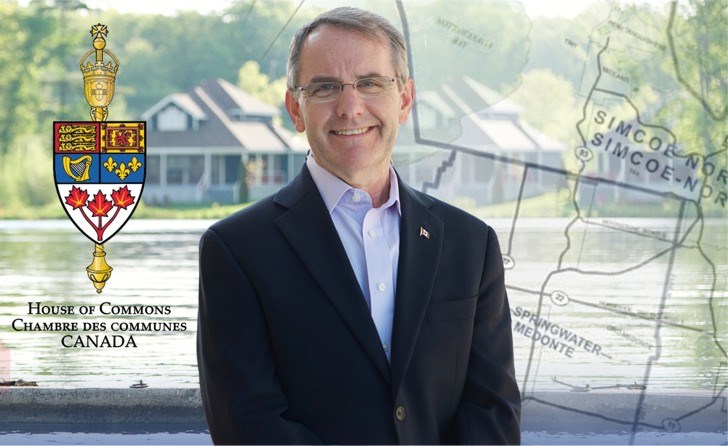With more Canadians returning from abroad following March break and snowbirds coming home after months in the south, self-isolation will continue to be a hot topic.
While many self-isolation cases follow the honour system, those who have been ordered quarantined can be charged if they stray from home.
Simcoe North MP Bruce Stanton said the federal charges can be brought against those who have been told not to leave their premises.
“Canada does have a Quarantine Act too, that imposes criminal penalties and fines for infractions,” Stanton said. “The act would have applied, for example, to the passengers of those airplanes that came back from Wuhan and from the Diamond Princess – when they were quarantined in Trenton and at the NAV Centre in Cornwall.”
The act, which was created in 2005 following Canada’s SARS outbreak, allows the federal government to quarantine individuals arriving in the country to prevent the “introduction and spread of communicable diseases.”
According to the act, every person who commits an offence is liable on an indictment conviction to a fine of not more than $1,000,000 or to imprisonment for a term of not more than three years, or to both. A summary conviction carries a fine of up to $300,000 and/or a jail term of up to six months.
On Friday, a Québec City woman, who had tested positive for the coronavirus, was arrested for being outside her home, thereby breaking a quarantine order. The city’s police force was asked to intervene in the case by regional health authorities and hasn’t said yet if charges will be laid against the woman.
OPP Staff Sergeant Carolle Dionne said police will enforce the act if asked to intervene by public health agencies, but haven’t yet fielded any such requests.
“It’s not the same as self-isolation where you might see them out and about,” she said, noting the Quarantine Act only applies in certain cases and isn’t the same as someone being told at a Canadian border or an international airport to self-isolate.
And while a quarantine order is pretty much black and white in its scope, Stanton noted the chief medical officers of health, like Theresa Tam, have been getting asked in recent days to clarify exactly what self-isolation entails.
“When people are asked to self-isolate, as they are at the border, it is on their honour that they do so,” Stanton said, adding that provinces also have public health laws that contain powers of confinement for the protection of public health, which would presumably be triggered when, as Ontario did, invoke its state of emergency.
“So, bottom line is, there are powers of enforcement, but it appears they are being used sparingly so as to engender more of a community interest approach than a ‘by enforcement’ one.”
The OPP has also released a set of fines that can be laid against businesses or other organizations that defy the province’s recent health emergency declaration.
“Although voluntary compliance is always preferred, under the Emergency Management and Civil Protection Act (EMCPA), there are consequences for individuals and businesses that choose to defy the act while it is in force,” the provincial force stated.
“Contravening the expert advice provided by the Chief Medical Officer of Health to close certain businesses and institutions and limit gatherings to 50-people or less, the Provincial Offences Act has been updated to include three offences to be enforced by police, along with set fines per offence, ranging from a $750 fine for failing to comply with an order to a $1,000 fine for obstructions of person and a fine of $500,000 for corporations.
The fines apply to bars and restaurants (except facilities that provide takeout and food delivery), libraries, private schools, facilities providing indoor recreational programs, cinemas and theatres, concert venues and all all licensed childcare centres.
Additionally, all organized public events of more than 50 people are prohibited, including parades, events and communal services within places of worship. These orders remain in place until month’s end when the province will determine whether to extend or end the closures.
